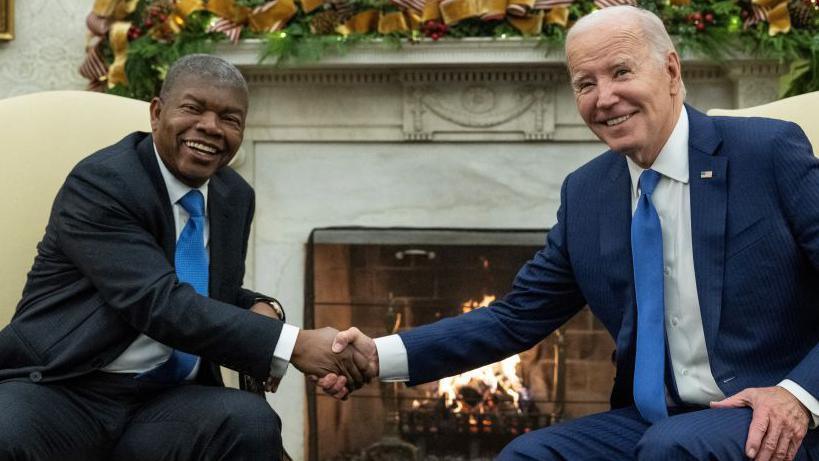U.S. President Joe Biden visited Angola’s National Slavery Museum on Tuesday, reflecting on the history of slavery as he toured artifacts including shackles and a whip. He also emphasized Africa’s growing global influence, saying that by 2050, one in four people in the world will be African and that the continent’s future is crucial to the world’s fate.
Biden’s visit to Angola, the first by a sitting U.S. president, is part of an effort to promote billions of dollars in investments in the country, particularly in infrastructure projects. He highlighted what he called the largest U.S. rail investment overseas, aiming to strengthen ties between the two nations.
Earlier, Biden met with Angolan President João Lourenço, who described the visit as a pivotal moment in U.S.-Angola relations, which have evolved since the Cold War era.
“The United States is all in on Africa,” Biden said during his meeting with Lourenço. On Wednesday, Biden is scheduled to visit Lobito, a coastal city, to view the corridor’s Atlantic Ocean outlet. The project has received funding from the European Union, the Group of Seven industrialized nations, a private Western-led consortium, and African banks.
While Biden’s trip underscores U.S. commitment to Africa, questions remain about the actual delivery of promised investments, and how much of the funding will depend on policies from the previous U.S. administration under President Donald Trump.
Biden had planned the trip to sub-Saharan Africa last year after re-energizing the U.S.-Africa Summit in 2022, but the visit was delayed, fueling perceptions that Africa remains a low priority for Washington. The last sitting U.S. president to visit the region was Barack Obama in 2015.
Biden’s visit included a tour of the National Slavery Museum, located on the site of the former Capela da Casa Grande, a 17th-century chapel where enslaved people were baptized before being shipped to the Americas. Angola was the departure point for an estimated 6 million Africans enslaved during the transatlantic slave trade, according to the White House.
Speaking at the museum, Biden acknowledged the painful history of slavery, saying, “History cannot and should not be erased.” He reflected on America’s founding ideals of freedom and equality, noting, “It’s abundantly clear today we have not lived up to that ideal.”
Looking to the future, Biden added, “I know the future runs through Angola, through Africa.”

